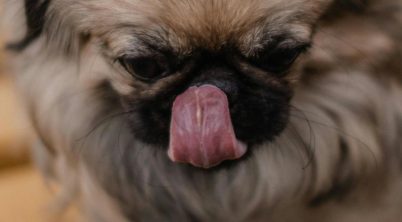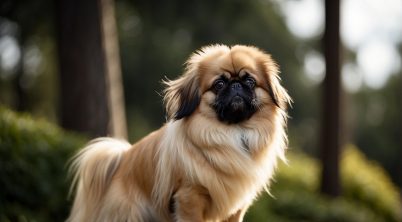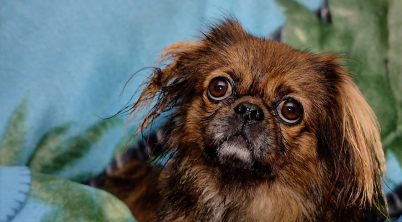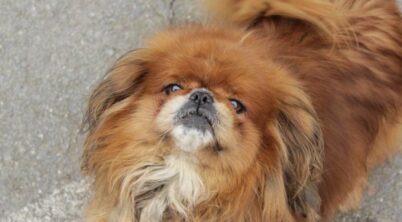Pekingese dogs, with their regal demeanor and distinctive lion’s mane, require a well-considered diet to maintain optimal health. They, like many other purebred dogs, are susceptible to food allergies which can impact their overall well-being. Food allergies in Pekingese manifest through various symptoms, including skin rashes, ear infections, gastrointestinal upset such as vomiting and diarrhea, and more severe reactions like anaphylaxis in extreme cases. It is crucial for Pekingese owners to recognize these signs to manage their pet’s condition effectively.
A healthy diet for a Pekingese is pivotal in managing and preventing allergic reactions. Identifying the allergens – which may include common ingredients like chicken, beef, dairy, wheat, and corn – is the first step in crafting a diet that avoids triggering a response. Hypoallergenic dog foods, often in the form of hydrolyzed protein diets, have been shown to benefit dogs with food sensitivities. Such diets break down proteins into smaller components that are less likely to cause an allergic reaction.
Consultation with a veterinarian is vital when a Pekingese shows signs of food allergies. Vets can help diagnose the specific allergens and recommend appropriate hypoallergenic food formulas designed to relieve symptoms. They can also suggest other management strategies, ensuring the Pekingese maintains a balanced diet while avoiding troublesome ingredients, thereby promoting a happy and healthy life for this cherished companion.
Table of Contents
Identifying Food Allergies in Pekingese
Identifying food allergies in Pekingese involves observing specific symptoms and consulting a veterinarian to pinpoint the exact allergens causing discomfort to the dog.
Common Symptoms and Diagnoses
Pekingese dogs may display a range of symptoms that suggest a food allergy. The most common symptoms include:
- Skin issues: persistent itching, scratching, and development of skin rashes.
- Gastrointestinal distress: occurrences of vomiting and diarrhea.
- Ear problems: evidenced by repeated or chronic ear infections.
If an owner notices these health issues, it’s crucial to consult a veterinarian. A professional diagnosis might involve:
- Elimination diet: A structured process of removing possible allergens from the diet and then reintroducing them to identify the cause of allergic reactions.
- Blood and skin tests: To detect specific allergens that trigger the symptoms.
Allergens Specific to Pekingese
Pekingese dogs can be allergic to various foods, but common allergens include:
| Allergens | Symptoms |
|---|---|
| Chicken | Skin rashes, itching |
| Beef | Vomiting, gastrointestinal issues |
| Dairy products | Ear infections, diarrhea |
| Grains | (e.g., wheat, corn) Skin allergies, itching |
After identifying the allergen, an owner should eliminate these ingredients from the Pekingese’s diet to manage and mitigate allergic reactions effectively.
Optimal Diet for Allergy Management
Managing allergies in Pekingese through diet involves providing precise nutrition while avoiding allergens. This not only helps alleviate allergy symptoms but also contributes to the overall health of the dog.
Nutritional Requirements
A Pekingese dog requires a well-balanced diet rich in proteins, fats, carbohydrates, vitamins, and minerals. Proteins are essential for muscle maintenance and immune system support, but common protein sources like chicken, beef, and dairy may trigger allergies. Alternative protein sources such as fish may be more suitable, as they are less likely to cause allergic reactions and are high in omega-3 fatty acids, which can reduce inflammation.
Selecting Appropriate Dog Foods
When selecting dog foods for a Pekingese with allergies, it’s important to read labels carefully to ensure the food does not contain common allergens such as wheat, corn, or grains.
Recommended Dog Food Characteristics:
- Grain-free: Reduce exposure to potential allergens
- Hydration: Moist foods to aid in hydration
- Limited Ingredients: Fewer components reduce the risk of allergens
- Novel Proteins: Use of unconventional proteins to minimize allergic reactions
Role of Supplements in Allergy Control
Supplements play a supportive role in managing allergies by boosting the Pekingese’s diet with essential nutrients.
- Omega Fatty Acids: Incorporate both omega-3 and omega-6 fatty acids to support skin health and reduce inflammatory responses.
- Antioxidants: Enhance with antioxidants to help protect the body’s cells and strengthen the immune system.
- Probiotics: Add probiotics to maintain a healthy gut flora, which can be beneficial for dogs with gastrointestinal allergy symptoms.
- Vitamins and Minerals: Ensure that the Pekingese’s diet is replete with necessary vitamins and minerals to compensate for any nutritional gaps due to dietary restrictions.
In essence, an allergy management diet for a Pekingese should consist of hypoallergenic ingredients, an appropriate balance of nutrients, and supplements to support their health and control allergic reactions.
Daily Care and Management
The cornerstone of mitigating food allergies in Pekingese dogs involves daily care and management strategies that focus on grooming, controlling exposure to allergens, and maintaining a healthy weight through exercise and feeding practices.
Grooming Practices
Pekingese dogs possess a luxurious double coat that requires regular grooming to maintain skin health and control shedding. Weekly brushing is essential to remove loose hair and dander, which can harbor allergens. During grooming sessions, owners should inspect the skin for any signs of irritation or allergy-induced complications. Bathing should be done with a hypoallergenic shampoo and only as needed to prevent drying out the skin, but ensuring that the fur is thoroughly rinsed to remove any potential irritants from the coat.
Preventing Overexposure to Allergens
Managing a Pekingese’s environment plays a pivotal role in allergy prevention. Frequent cleaning of the dog’s living spaces helps reduce the accumulation of dander and pollen brought in from outside. Using hypoallergenic bedding and air filters can also help to keep the indoor environment clean. It’s crucial to be vigilant about the Pekingese’s contact with common food allergens, which may require adjustments to feeding routines and careful selection of treats to avoid triggering a reaction.
Exercise and Weight Management
Pekingese dogs benefit from regular, gentle exercise which helps maintain their overall health and is integral to weight management—a key factor in maintaining skin health and preventing allergies. Owners should exercise portion control when feeding and provide healthy treats that do not contribute to weight gain or allergies. Because Pekingese dogs are affectionate companions, they often enjoy interactive play sessions with their owners, which can serve as both bonding time and an opportunity for physical activity.
Common Health Complications Related to Allergies
In Pekingese dogs, allergies can lead to several health complications, particularly concerning their skin and digestive system, and may contribute to further chronic health issues.
Skin and Ear Conditions
Pekingese may experience skin allergies that result in rash, itching, and inflammation. These symptoms often translate into excessive scratching or licking and can lead to secondary skin infections. Chronic skin conditions can also cause hair loss and crusty patches. Regarding the ears, Pekingese are susceptible to chronic ear infections, which manifest through pain, a bad odor, or discharge from the ears.
Gastrointestinal Distress
Allergies in Pekingese dogs can cause gastrointestinal symptoms such as vomiting and diarrhea. These signs may indicate a reaction to certain foods, and pinpointing the offending allergen is important. A carefully considered diet, possibly incorporating probiotics, is essential for managing these allergic reactions and ensuring the dog’s nutrition needs are met.
Chronic Health Issues in Pekingese
Chronic health issues can arise from untreated or poorly managed allergies in Pekingese. Ongoing allergic responses can place additional stress on the immune system and exacerbate other health issues. These can range from skin rashes to more severe allergic reactions that negatively impact their overall well-being.
Working with Veterinary Professionals
When addressing food allergies in Pekingese dogs, collaborating with veterinary professionals is essential to determine an appropriate diet, manage symptoms, and maintain the overall health and quality of life of these regal canines.
Diagnosis and Treatment Plans
Veterinary professionals play a crucial role in diagnosing food allergies in Pekingese dogs. Diagnosis typically begins with a thorough health history review and a series of elimination diets to identify specific allergens. Nutrition is a key focus, as the right diet can significantly improve the dog’s skin and immune system health.
- Common Allergens: Chicken, beef, dairy, wheat, corn.
- Symptoms: Itching, dermatitis, ear infections, GI upset.
Once allergens are identified, the veterinarian creates a treatment plan that includes:
- Nutritional Guidance: A hypoallergenic diet, often with novel or hydrolyzed proteins.
- Medical Support: Prescribing antihistamines or corticosteroids to alleviate symptoms.
- Lifestyle Adjustments: Recommendations for regular exercise and hydration to support systemic health.
Ongoing Monitoring and Adjustments
Long-term management of a Pekingese with food allergies involves regular visits to the veterinarian for ongoing monitoring. These appointments are vital to:
- Track the Pekingese’s response to dietary changes.
- Adjust the diet plan as needed for optimal nutrition and health.
- Evaluate the skin and ear health to prevent infections and other health issues.
Veterinarians may recommend routine blood work or skin tests to assess the immune system’s response to the adjusted diet. Additionally, they can provide training on how to administer medication and on the dog’s exercise regimen to promote a healthy lifespan for these independent pets once known as companions to Chinese royalty. Proper management can help ensure these dogs maintain their characteristic Peke vigor and vitality.








